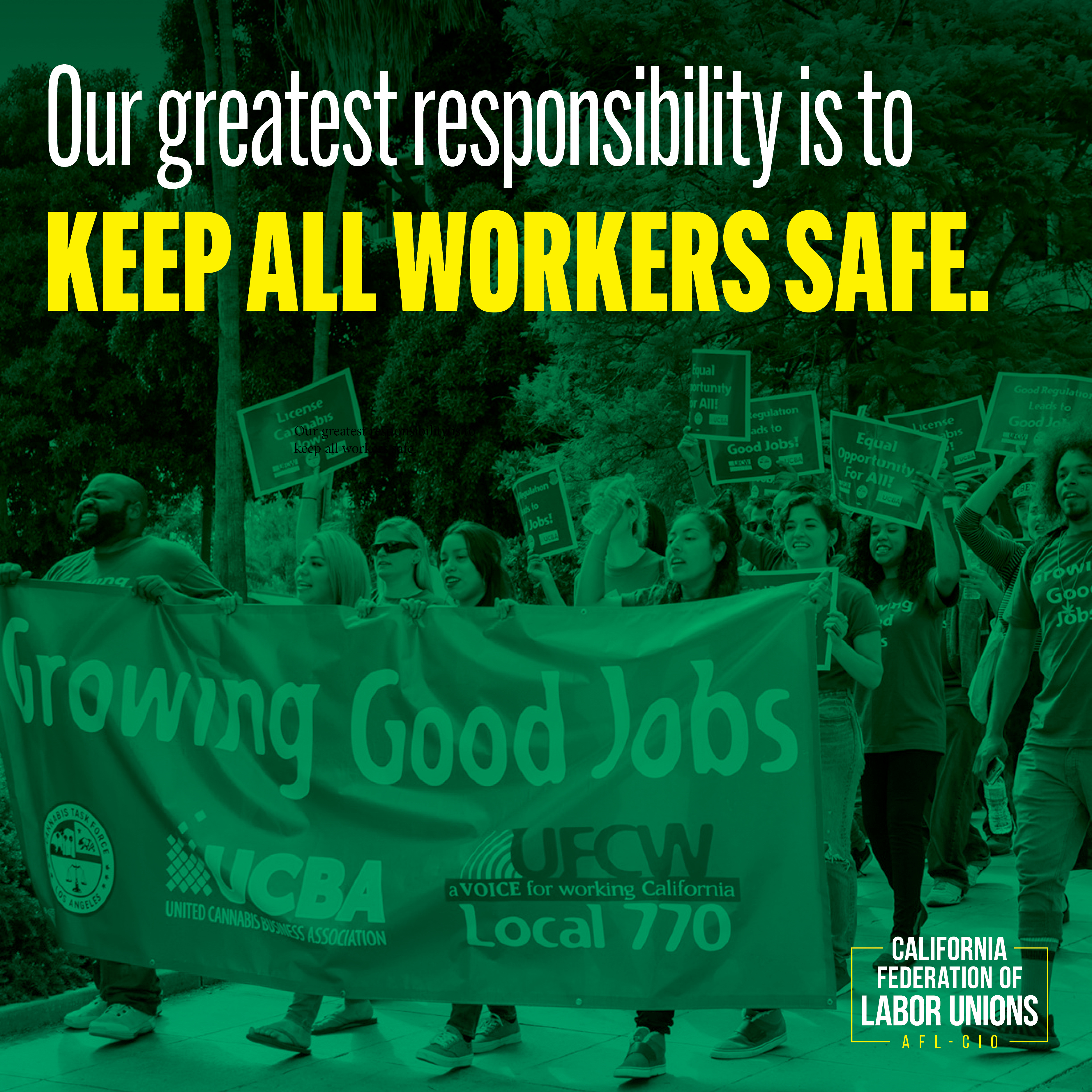|
|
In 2016, California voters legalized the possession and sale of cannabis, also known as marijuana. That vote kickstarted an explosive growth in the cannabis industry, and with labor peace agreements in place in harvesting, delivery and retail, the legal cannabis sector became a highly unionized industry. That growth came despite complications with California’s licensing process, a patchwork of legal status around the state, and a booming black market of unlicensed growers, dispensaries and other unscrupulous actors circumventing the law. Cannabis brings in a massive amount of revenue for the state; in the first quarter of 2025, the California Department of Tax and Fee Administration recorded more than $1 billion in taxable sales. That money goes toward investments in youth programs, substance abuse prevention and treatment, environmental restoration and public health initiatives and provides much-needed revenue for cities, counties and the state. But here’s the thing. No matter its status in California, or in the 39 other states where cannabis is legal in some form, the federal government officially categorizes cannabis as a Schedule I drug, with no accepted medical use. In other words, cannabis is still illegal under federal law. And while the Biden Administration deprioritized enforcement of that law, and even pushed a proposal to reschedule the drug, the Trump Administration has a much more draconian view of cannabis. Worse, the current Administration’s Immigration and Customs Enforcement (ICE) agency has demonstrated a willingness to use federal law against cannabis to engage in immigration raids on cannabis farms, as we tragically saw in Ventura County, where one farmworker lost his life during a raid. Going forward, we can expect to see more of this from the current Administration. This is why United Farm Workers released a statement to its members, warning them that if they are not U.S. citizens, they should avoid taking jobs in the cannabis industry, even at state-licensed facilities and farms. It’s not right, and it’s not fair, but in this era of uncertainty, it is what is necessary. Our greatest responsibility in the Labor Movement is to keep all workers safe, and unfortunately the cannabis industry has become an unsafe place for non-citizens. In Solidarity, Lorena Gonzalez |
|

